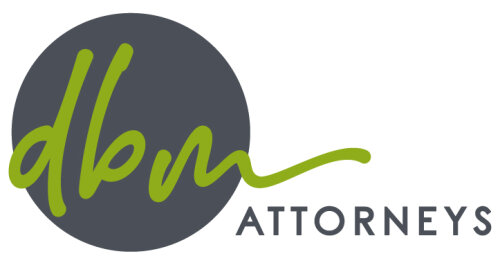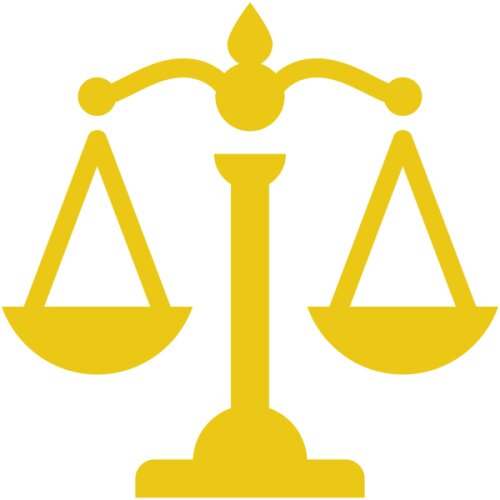Best ADR Mediation & Arbitration Lawyers in Newcastle
Share your needs with us, get contacted by law firms.
Free. Takes 2 min.
List of the best lawyers in Newcastle, South Africa
South Africa ADR Mediation & Arbitration Legal Articles
Browse our 1 legal article about ADR Mediation & Arbitration in South Africa written by expert lawyers.
- Resolving Cross-Border Commercial Disputes in South Africa
- Mandatory Consideration: Uniform Rule 41A requires all litigants in the South African High Court to consider mediation before proceeding to trial, making it a standard step in cross-border disputes. Enforceability: Settlements reached through mediation can be made an order of the court, giving them the same legal weight and enforcement... Read more →
About ADR Mediation & Arbitration Law in Newcastle, South Africa
Alternative Dispute Resolution (ADR) encompasses various methods of resolving disputes outside of the courtroom, with mediation and arbitration being two of the most prominent strategies in practice. In Newcastle, South Africa, ADR is often considered a favorable approach due to its cost-effectiveness, confidentiality, and timely resolution compared to conventional litigation. Mediation involves a neutral third party aiding disputing individuals or entities to reach a mutual agreement, while arbitration is more akin to a private trial where an arbitrary makes binding decisions. Both forms are highly regarded for maintaining relationships and providing a less adversarial process.
Why You May Need a Lawyer
Engaging a lawyer in ADR processes, whether in mediation or arbitration, can be highly beneficial for several reasons. Lawyers help ensure that the client's rights are protected and that any agreements reached are in their best interests and legally sound. Common situations where legal advice may be necessary include commercial contract disputes, employment grievances, family law matters, and construction disagreements. While ADR aims to resolve issues amicably, the presence of legal expertise helps navigate complex legal landscapes and enforce outcomes.
Local Laws Overview
In Newcastle, South Africa, ADR practices are influenced by both national legislation and local legal frameworks. The Arbitration Act of 1965 governs arbitration proceedings across the country, setting standards for the conduct and enforcement of arbitration awards. Mediation is less regulated, which provides significant flexibility but also necessitates informed guidance to ensure fairness and enforceability of outcomes. The local courts support the use of ADR and may even mandate it as a prerequisite to litigation. Practitioners in Newcastle are expected to adhere to ethical guidelines ensuring impartial and fair dispute resolution processes.
Frequently Asked Questions
What is the difference between mediation and arbitration?
Mediation is a collaborative process where a mediator helps the parties reach a voluntary agreement, while arbitration involves an independent arbitrator making binding decisions on the dispute.
Is ADR mandatory in Newcastle, South Africa?
While it's not always mandatory, courts in South Africa encourage and sometimes require ADR before allowing cases to proceed to trial.
Are ADR outcomes enforceable in South Africa?
Yes, arbitration awards are legally binding and enforceable, similar to court judgments. Mediation agreements, if drafted with legal support, can become enforceable contracts.
Can I arbitrate any type of dispute?
Most commercial disputes can be arbitrated, but matters like criminal cases, divorce, and child custody are generally not subject to arbitration in South Africa.
How does one initiate mediation or arbitration?
The process typically begins with the agreement of both parties to engage in ADR, followed by selecting a mediator or arbitrator and scheduling the sessions.
What are the costs associated with ADR?
ADR is generally more cost-effective than court litigation, but costs can vary depending on the complexity of the case and the chosen mediator or arbitrator's fees.
How long does ADR take compared to court trials?
ADR is usually much quicker, often taking weeks to a few months, unlike court trials which may take years to conclude.
Can I bring a lawyer to ADR sessions?
Yes, parties often have their lawyers present during ADR sessions to ensure their rights are protected and agreements are appropriately drafted.
What happens if ADR fails to resolve the dispute?
If mediation fails, parties still have the option to proceed to arbitration or take the matter to court. If arbitration is unsuccessful or partly resolved, parts of the case may need litigation.
Are ADR sessions confidential?
Yes, ADR sessions are confidential, which allows parties to discuss issues openly without fearing public disclosure.
Additional Resources
For those seeking further information or assistance with ADR in Newcastle, South Africa, several resources and organizations may be helpful. These include the Arbitration Foundation of Southern Africa (AFSA), local law societies, and legal aid services. The Department of Justice and Constitutional Development also provides guidance on ADR practices.
Next Steps
If you believe ADR is an appropriate route for your dispute, it is advisable to consult with an ADR-specialized attorney to understand your options and rights better. Begin by gathering all relevant documents and information related to your case. Contact a local law firm in Newcastle with experience in ADR to schedule a consultation. Your lawyer can guide you through selecting the appropriate ADR method and representatives and help prepare for the proceedings.
Lawzana helps you find the best lawyers and law firms in Newcastle through a curated and pre-screened list of qualified legal professionals. Our platform offers rankings and detailed profiles of attorneys and law firms, allowing you to compare based on practice areas, including ADR Mediation & Arbitration , experience, and client feedback.
Each profile includes a description of the firm's areas of practice, client reviews, team members and partners, year of establishment, spoken languages, office locations, contact information, social media presence, and any published articles or resources. Most firms on our platform speak English and are experienced in both local and international legal matters.
Get a quote from top-rated law firms in Newcastle, South Africa — quickly, securely, and without unnecessary hassle.
Disclaimer:
The information provided on this page is for general informational purposes only and does not constitute legal advice. While we strive to ensure the accuracy and relevance of the content, legal information may change over time, and interpretations of the law can vary. You should always consult with a qualified legal professional for advice specific to your situation.
We disclaim all liability for actions taken or not taken based on the content of this page. If you believe any information is incorrect or outdated, please contact us, and we will review and update it where appropriate.










